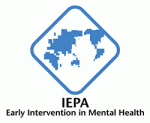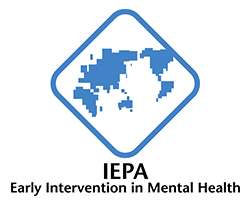Keynotes
confirmed
The North American Prodrome Longitudinal Study: NAPLS 1-3 the development of a consortium
Abstract:
The North American Prodrome Longitudinal Study (NAPLS) consortium was initiated in 2003 with eight independently National Institute of Mental Health (NIMH) funded sites. Sites included the Universities of Yale, Calgary, North Carolina, Emory, Harvard, and the University of California at San Diego and at Los Angeles. In 2008, they were awarded a 5-year grant from NIMH to incorporate biological assessment approaches (neuroimaging, electrophysiological, hormonal and genetic) into a multi-site prospective study of 720 participants at clinical high risk for developing psychosis and 240 matched controls, known as NAPLS 2. Then in 2014 NAPLS was competitively renewed for a new 5-year study period (NAPLS 3) to further clarify the roles of neuroinflammation and deficient synaptic plasticity in the development of psychosis and a 9th site, the University of California, San Francisco was added. Numerous papers have been published from the NAPLS project, an overview of which will be part of the focus of this presentation. The next step for this collaboration is to work with other consortiums with the aim of moving the field to newer levels.


Reflections around the prevention of depression
Abstract:
Despite some interesting ideas and results, the prevention of emotional disorders remains an elusive concept with limited evidence to guide further developments. The limited knowledge on the aetiology of emotional disorders limits our capacity to develop better interventions. This presentation will address some issues such as time sensitive periods to act, types of prevention intervention, and methodological and practical challenges based ons tudies conducted mostly inlow-and-middle-income counrtries.


Early intervention for developing social relationships: Can we prevent bullying victimization and loneliness
Abstract:
Social relationships and interpersonal connections are fundamental to human life. Positive social relationships provide support in times of stress, while the absence or removal of these connections causes distress and presents potential long-term implications health and functional outcomes. Research reported poor mental, physical and functional outcomes associated with being bullied in childhood and with loneliness in young adulthood. Interventions aiming to reduce these phenomena are numerous but with limited results.
This presentation will examine evidence supporting early intervention to prevent bullying victimization in childhood and loneliness in your adulthood.


Widening the clinical and geographical frontiers of neurodevelopment studies - the Brazilian High Risk Cohort Study
Abstract:
Most psychiatric disorders emerge during adolescence preceded by a phase during which attenuated symptoms and functional decline become apparent. The clinical presentation and course of the mental disorders is extremely variable and poorly understood. Neurodevelopment cohort studies are beginning to provide new insights about the interaction between neurobiological and environmental processes during this period. However, there is still an enormous gap in knowledge that is even more pronounce in Low and Middle Incomes Countries (LaMIC), where almost 90% of the world’s youth live. Research outputs from a large cohort study, the “Brazilian High Risk Cohort Study” (BHRCS) (https://osf.io/ktz5h/ ) that combines epidemiology and neuroscience methods to follow 2,511 6-12 years-old Brazilian children for up to 10 years now will be presented. Altered neurodevelopmental trajectories were associated with incident mental disorders using neuroimaging, genetics, cognition, and in-depth psychiatric evaluations. Analyses of baseline and 3-year follow-up data have already added to previous literature. A large treatment gap in Brazil (only 1 in 5 children with a mental disorder had received any lifetime mental health care). Research finding about reduced fractional anisotropy of the superior longitudinal fasciculus in children with poor decoding and writing skills; increased centrality of cortical brain networks during the transition to adolescence. Aberrant intrinsic connectivity within the reward network linked with new-onset adolescent depression. Early findings on high-risk stratification, and COVID mental-health impacts from the last wave of data collection (18-21 years-old) will be presented.


Youth mental health in troubled times
Abstract:
Youth mental health (YMH) initiatives are vital to reducing the overall impact of mental disorders in a population. A large-scale community YMH program was due to launch when social unrest broke out in Hong Kong in 2019, which saw huge increases in mental distress in the population. The subsequent emergence of COVID-19 superimposed a further layer of stressors and difficulties. Engagement with services was hampered by a lack of trust and polarization in society. Evaluation of mental health was complicated by the persistence of population-level stressors. Data from an innovative large-scale survey and conventional epidemiological approaches complement one another to provide a more comprehensive picture of the extent of the mental health sequelae, as well as their underlying triggers. We observed that compared to the rest of the population, young people were particularly affected. Exposure to pandemic-related and unrest-related factors interacted in complex ways to aggravate PTSD and depressive symptoms. Given the increasing co-occurrences of pandemic and social protests, these observations may be relevant to understand how population-level stressors impact on youth mental health in other communities.


Preventing the onset of depressive disorders: Opportunities and challenges
Abstract:
Depression is common, costly, has a strong impact on the lives of individuals and society and has a strong association with morbidity and mortality. Preventing the onset of depressive disorders is one of the main challenges for public health in the coming decades. In this presentation an overview of the research field will be given. Why prevention is important, whether preventive interventions are effective, examples of important trials in the field will be given, and possibilities to increase the impact on public health will be discussed.


Intergenerational Psychiatry: A New Look at a Powerful Perspective
Abstract:
The talk will start by discussing recent developments in our understanding of intergenerational processes in psychiatry, from animal studies to converging evidence among humans, expanded by new tools now available, such as neonatal brain imaging, and others (Duarte, Monk, Weissman & Posner, World Psychiatry, accepted). Specific mechanisms and the potential of an intergenerational approach for broadening our understanding of developmental processes in Psychiatry will be illustrated by ongoing studies of individuals growing up in disadvantaged contexts, particularly, the Boricua Youth Study and the Brazil Babies Study.


Immune system as a potential target for treatment and prevention of serious mental illness and comorbid cardiometabolic diseases
Abstract:
The immune system, particularly low-grade systemic inflammation, has been implicated in pathogenesis of depression and schizophrenia. Inflammation is thought to be a clinically relevant phenotype, as immune activation is associated with poor response to psychotropic medications. Currently, a number of RCTs are testing the efficacy of novel anti-inflammatory drugs for patients with depression and schizophrenia. However, there are key unanswered questions both mechanistic and clinical. Is inflammation a causal risk factor for depression and schizophrenia? Could anti-inflammatory treatment be used to treat these disorders? If so, which patients are likely to benefit? Dr Khandaker will present evidence from population-based longitudinal studies and Mendelian randomization genetic analysis addressing the issue of causality. These studies suggest that reverse causality or residual confounding is unlikely to fully explain the associations of interleukin 6 (IL-6), a pro-inflammatory cytokine, with depression and schizophrenia. He will present data from systematic reviews and meta-analysis on the effect of anti-inflammatory drugs, including monoclonal antibodies, on depressive symptoms. These studies have led to two proof-of-concept double blind RCTs of tocilizumab (anti-IL-6R monoclonal antibody) for patients with depression and first episode of psychosis including the ongoing Insight study (ISRCTN16942542), which will be discussed. Furthermore, Dr Khandaker will present emerging evidence from genetic and epidemiological analysis suggesting that inflammation be a shared mechanism for comorbid cardiometabolic disease in people with serious mental illness.


The Next Stage for Early Intervention: Transdiagnostic, Personalized, Universal
Abstract:
Early intervention in mental health has made great progress over the past 25 years through the prototype of early psychosis. Yet real world reform remains relatively piecemeal and comprehensive upscaling has not yet occurred to enable every person with psychotic illness is to receive timely, personalised and sustained clinical care and reach their full potential. Nevertheless, the beachhead and evidence base established by the EI paradigm in psychosis creates the conditions for this principle to be extended to the full diagnostic spectrum. EI has universal value in health care and the fluidity of our syndromal approach to diagnosis both cross-sectionally and longitudinally means that we cannot focus too narrowly. The clinical staging model may provide the framework for us to translate the principles of early intervention to a wide range of mental disorders. New cultures of care appropriate to early intervention are needed and emerging. Through more refined prediction strategies and definition of underlying mechanisms we can also move towards the holy grail of a more personalized approach to treatment. Transdiagnostic research can be enabled if systems of care guarantee “soft entry” to new cultures youth-oriented culture of care, at the sub threshold stage, making stepwise expertise progressively available with functional recovery as the goal. We need to combine the power of the evidence-based paradigm with greater confidence, tenacity and much more intensive and professional advocacy in partnership with the general public.


Tales from the frontline: understanding the impact of psychosis on families
Abstract:
To provide optimal patient care, all health systems, including mental healthcare, need families. They rely on their support, expertise, and the ‘safety net’ they all too often provide. To what degree, however, do these health systems understand the different ways in which families can be directly and indirectly impacted by their support and caregiving roles? To what extent do health and social care providers consider the information, support, and health needs of families, and how these might vary depending on different illness phases, family configurations, and socio-economic factors. This talk will seek to shine a spotlight on the families of people with lived experience of psychosis. It will explore how our current understanding of families, and the specific health needs of carers, have evolved over recent decades and what evidence gaps remain. The implications for family caregiving, service provision and policy will be discussed


Prevention and Early Intervention in Low and Middle-Income Countries: from Neuroscience to Public Health
Abstract:
In this presentation, I will discuss strategies for health prevention, promotion, and treatment in low and middle-income countries. I will discuss original data on strategies from neuroscience and pragmatic implementation strategies in low resource settings.
























